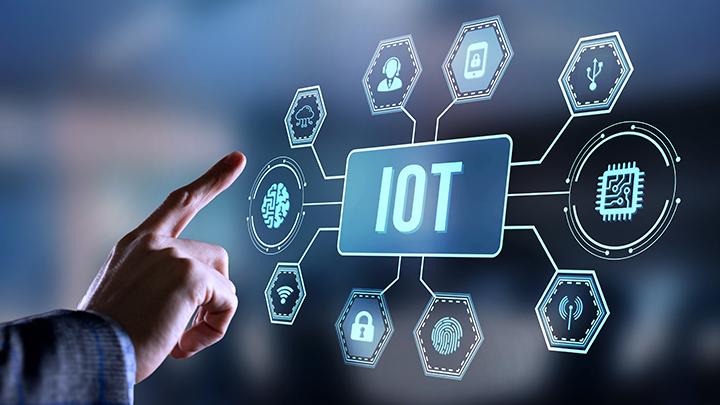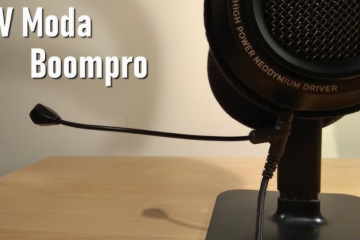The Internet of Things (IoT) is transforming the business landscape in 2024, driving innovation and efficiency across industries. IoT companies are at the forefront of this revolution, developing technologies enabling connection and data exchange between billions of devices. This proliferation of smart devices is fueling a data revolution, providing businesses unprecedented insights into their operations, customers, and market trends.
IoT companies are reshaping industries from manufacturing and retail to healthcare and agriculture. IoT enables smart factories to optimize production processes and predict maintenance needs in manufacturing. Retailers use IoT for inventory management and personalized customer experiences. In healthcare, connected devices improve patient monitoring and operational efficiency. Agricultural IoT solutions increase crop yields while conserving resources. These applications are driving significant benefits, including increased operational efficiency, improved customer experiences, and new revenue streams through data-driven services.
This blog explores IoT’s impact on business, covering its fundamentals, the role of IoT companies, real-world applications, operational impacts, implementation, and challenges. By examining how IoT revolutionizes business practices, readers will understand how to leverage this technology for competitive advantage in 2024 and beyond.
What is IoT and Why Should Businesses Care?
The Internet of Things (IoT) represents a paradigm shift in how devices interact and share information. At its essence, IoT refers to the network of physical objects—”things”—embedded with sensors, software, and other technologies, enabling them to connect and exchange data with other devices and systems over the internet. IoT ecosystem comprises four key components:
- Sensors and Devices: These collect data from the environment or equipment.
- Connectivity: This includes cellular, satellite, WiFi, Bluetooth, or other methods to transmit data.
- Data Processing: Cloud-based platforms that analyze and process the collected data.
- User Interface: Applications or dashboards that present information to users and allow control of IoT systems.
Several technological advancements have driven the evolution of IoT:
- Miniaturization of sensors and processors, making it possible to embed them in a wide range of objects.
- Increased connectivity options, including the rollout of 5G networks, enabling faster and more reliable data transmission.
- Cloud computing and edge processing advancements allow for more efficient data analysis.
- Developing sophisticated AI and machine learning algorithms enhances the ability to derive insights from IoT data.
Businesses should care about IoT because it offers transformative potential across various aspects of operations:
- Enhanced Visibility: IoT provides real-time insights into business operations, asset performance, and customer behavior. This visibility enables more informed decision-making and rapid response to changing conditions.
- Operational Efficiency: IoT can significantly improve operational efficiency by automating processes and providing data-driven insights. This can lead to cost savings, reduced waste, and improved resource allocation.
- New Business Models: IoT enables the creation of new products and services. For example, manufacturers can offer predictive maintenance services based on real-time equipment data, creating new revenue streams.
- Improved Customer Experience: IoT allows businesses to offer more personalized and responsive services. This can lead to increased customer satisfaction and loyalty.
- Competitive Advantage: Early adopters of IoT can gain a significant edge over competitors by improving their operations and offering innovative products and services.
- Risk Mitigation: IoT systems can help businesses identify and mitigate risks more effectively, from supply chain disruptions to equipment failures.
- Sustainability: IoT can play a crucial role in sustainability efforts by optimizing resource use and reducing waste.
Types of IoT Companies Driving Innovation
The IoT ecosystem is diverse, with various types of companies contributing to its growth and innovation. Understanding these different players is crucial for businesses looking to leverage IoT technologies effectively. Here are the main types of IoT companies driving innovation:
IoT Device Manufacturing Companies: These companies produce the physical components of IoT systems, including sensors, actuators, and connected devices. Examples include Bosch, Intel, and Texas Instruments.
IoT Platform Providers: These companies offer platforms that enable businesses to manage their IoT devices, collect and analyze data, and develop IoT applications. Major players include Amazon Web Services (AWS IoT), Microsoft (Azure IoT), and Google (Cloud IoT).
IoT Software and Analytics Companies: These firms develop software solutions that process, analyze, and visualize IoT data, turning raw information into actionable insights. Companies like SAS, IBM, and Splunk are leaders in this space.
IoT Security Firms: With the proliferation of connected devices, security has become a critical concern. IoT security companies specialize in protecting IoT networks and devices from cyber threats. Prominent players include Cisco, Symantec, and Palo Alto Networks.
Industry-Specific IoT Solution Providers: These companies focus on developing IoT solutions tailored to specific industries. For example, Proteus Digital Health specializes in healthcare IoT, while John Deere has become a leader in agricultural IoT solutions.
IoT Services Companies: These firms help businesses plan, implement, and manage their IoT initiatives. Companies like Accenture, Deloitte, and Capgemini offer these services.
As the IoT landscape continues to evolve, collaboration between these different types of companies is becoming increasingly important. Businesses looking to implement IoT solutions often need to work with multiple providers to create comprehensive, end-to-end solutions that address their specific needs.
Real-World Applications of IoT in Business
The Internet of Things (IoT) is transforming businesses across various sectors. Here are some of the most impactful real-world applications:
- Smart Manufacturing and Industry 4.0 In smart factories, IoT enables:
- Real-time monitoring of production processes
- Predictive maintenance, reducing downtime and costs
- Quality control through continuous monitoring
- Enhanced worker safety
- IoT in Retail: Enhancing Customer Experience and Inventory Management IoT applications in retail include:
- Smart shelves with weight sensors for automatic inventory updates
- Beacons sending personalized offers to customers’ smartphones
- RFID tags for product tracking throughout the supply chain
- Smart fitting rooms for improved customer service
- Connected Logistics and Supply Chain Optimization IoT is streamlining logistics through:
- Real-time tracking of goods in transit
- Monitoring of storage conditions for sensitive products
- Predictive analytics for route optimization and demand forecasting
- Automated inventory management in warehouses
- IoT in Agriculture: Precision Farming and Crop Management In agriculture, IoT enables:
- Soil sensors for monitoring moisture levels and nutrient content
- Drone-based aerial imaging for crop health assessment
- Smart irrigation systems for optimized water usage
- Connected weather stations for informed decision-making
- Smart Buildings and Energy Efficiency IoT makes buildings more efficient through:
- Smart HVAC systems are adjusted based on occupancy and weather
- Automated lighting systems for energy conservation
- Advanced security systems with connected cameras and sensors
- Real-time energy usage monitoring and optimization
These applications demonstrate IoT’s versatility and transformative power across different business sectors. As IoT technologies continue to evolve and become more accessible, we can expect to see even more innovative applications emerge, further revolutionizing how businesses operate and interact with their customers.
The Impact of IoT on Business Operations
The Internet of Things (IoT) is fundamentally changing how businesses operate, offering unprecedented insights and control over various aspects of operations. This transformative technology is not just improving existing processes; it’s enabling entirely new ways of doing business. From data-driven decision-making to new business models, IoT is empowering companies to operate more efficiently, respond more quickly to market changes, and deliver better value to their customers.
One of the most significant impacts of IoT on business operations is the improvement in data collection and analysis. IoT devices serve as constant sources of valuable data, providing businesses with a wealth of information about their operations, customers, and market trends. This real-time data enables companies to monitor business processes continuously, identify inefficiencies and bottlenecks, and make data-driven decisions.
Enhanced predictive maintenance is another area where IoT is making a substantial impact. By equipping machinery and equipment with IoT sensors, businesses can detect early signs of wear or malfunction, predicting when maintenance will be needed. This proactive approach to maintenance can significantly reduce downtime and associated costs.
IoT is also driving increased operational efficiency and cost reduction across various business functions. IoT is helping businesses streamline their operations by automating routine tasks, optimizing resource usage, and reducing human error. For instance, in warehouse management, IoT-enabled systems can automatically track inventory levels, optimize storage based on demand patterns, and even guide workers to the most efficient picking routes. These efficiencies can lead to substantial cost savings.
Real-time decision-making and increased agility are additional benefits that IoT brings to business operations. With IoT devices providing constant streams of data, businesses can respond quickly to changing conditions. This could mean adjusting production levels based on real-time demand data, rerouting shipments based on traffic conditions, or modifying marketing strategies based on immediate customer feedback.
The impact of IoT on customer experience and engagement cannot be overstated. IoT enables businesses to offer more personalized services, anticipate customer needs, and provide proactive support. For instance, a car manufacturer could use IoT sensors to detect potential issues before they become problems, scheduling maintenance and improving customer satisfaction.
Overcoming Challenges in IoT Implementation
While the Internet of Things (IoT) offers numerous benefits for businesses, its implementation is not without challenges. Understanding and addressing these obstacles is crucial for successful IoT adoption. Here are the key challenges businesses face when implementing IoT solutions:
- Security and Privacy Concerns As IoT devices collect and transmit vast amounts of data, they become potential targets for cyberattacks:
- Securing numerous connected devices against unauthorized access
- Protecting sensitive data during transmission and storage
- Ensuring compliance with data protection regulations like GDPR
Mitigation strategies:
- Implementing robust encryption for data in transit and at rest
- Regular security audits and updates for all IoT devices
- Developing comprehensive cybersecurity policies and training programs
- Interoperability and Standardization Issues The IoT ecosystem involves devices from various manufacturers, often using different protocols:
- Ensuring different IoT devices can communicate effectively
- Integrating IoT systems with existing IT infrastructure
- Lack of universal standards for IoT devices and protocols
Mitigation strategies:
- Adopting open standards and protocols where possible
- Using middleware solutions to bridge different systems
- Partnering with vendors committed to interoperability
- Talent Acquisition and Skill Gaps The rapid growth of IoT has created a demand for specialized skills:
- Shortage of professionals with IoT expertise
- Need for cross-functional knowledge spanning IT, OT, and data science
- Continuous learning required to keep up with evolving technologies
Mitigation strategies:
- Investing in training and development programs for existing staff
- Partnering with educational institutions to develop IoT talent pipelines
- Leveraging managed IoT services to supplement in-house capabilities
By addressing these challenges proactively, businesses can maximize the benefits of IoT implementation while minimizing risks and obstacles.
Conclusion
The Internet of Things (IoT) has emerged as a game-changing force in business, revolutionizing operations across industries. From manufacturing and retail to agriculture and healthcare, IoT drives efficiency, enables data-driven decision-making, and creates new value propositions for customers. Its impact spans from optimizing supply chains and enhancing predictive maintenance to enabling personalized customer experiences and creating new revenue streams.
As IoT technologies continue to evolve, their potential to transform businesses will only increase, offering significant competitive advantages to those who successfully leverage these innovations.



